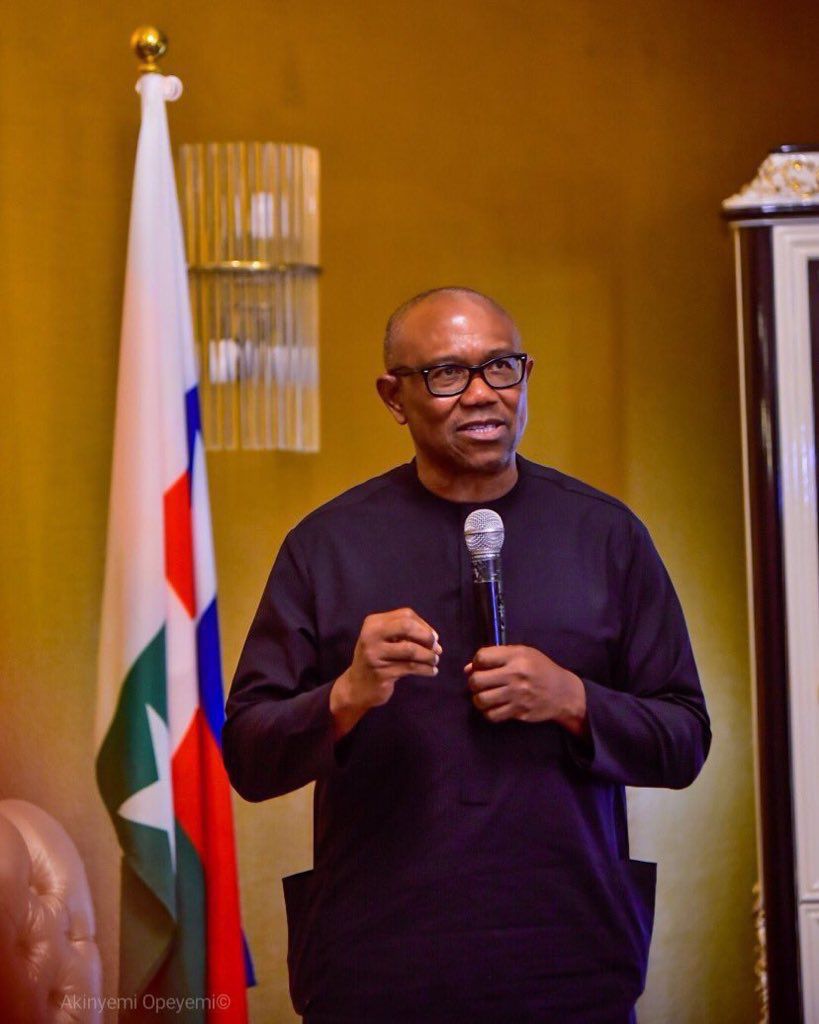Lagos State Government has sharply rejected claims made by Peter Obi regarding the demolition of structures at the Trade Fair Complex in Ojo. A statement from the Commissioner for Information and Strategy, Gbenga Omotoso, described Obi’s remarks as misleading, unfair and based on misinformation. The government insists that the exercise was carried out in accordance with valid physical planning and building laws.
Obi, former Labour Party presidential candidate, visited the Trade Fair Complex on September 30 alongside lawmakers and party officials. At the site, he praised traders for maintaining calm despite what he called a “painful loss.” He claimed that many of the affected buildings had secured approvals and described the demolitions as a test of impunity, justice, and compassion. He urged government at all levels to act with fairness and protect legitimate investments, warning that demolishing structures without due process discourages enterprise.
Lagos State responded through Omotoso, who said none of the buildings pulled down had valid planning permits or approvals from the State Ministry of Physical Planning and Urban Development. He said the owners were given ample time to regularise their documentation during a general amnesty declared by the state government last year, which was extended several times, but they did not comply. Omotoso said when physical planning officials visited the premises, they were locked out and assaulted and needed police rescue. He added that invitations to dialogue with the traders were declined.
Omotoso further clarified that while the Trade Fair Complex Board under the Federal Government can allocate space and manage leases, it does not have the authority to approve or regulate building construction within the complex, independent of Lagos State. He cited the Nigerian Urban and Regional Planning Act 1992, as adopted by Lagos State, and a 2003 Supreme Court judgment (Attorney-General of Lagos State v. Attorney-General of the Federation) affirming that land use and development control fall under concurrent jurisdiction, with states retaining significant powers over physical planning.
The demolition exercise began on September 26, targeting structures deemed defective, without proper building permits, blocking road setbacks, or impeding drainage systems. Lagos State said the enforcement aimed to protect infrastructure, reduce flooding, prevent unsafe construction, and uphold the law. The affected structures included plazas within the Auto Spare Parts and Machinery Dealers Association (ASPAMDA) section of the Trade Fair Complex.
Obi’s comments, which he made during his visit and through online platforms, were interpreted by Lagos State as political posturing. Omotoso said Obi’s framing of the issue as one of impunity and injustice was intended to stir public emotion. The government maintains that its actions were lawful and necessary and that enforcement followed due process.
Traders at ASPAMDA say they invested heavily in their buildings, in some cases taking loans, to set up businesses. For many, the demolitions represent not just a loss of property but a loss of livelihood. They argue that they believed their documents were in order. Some are still negotiating with government officials to seek compensation or some relief.
Observers say this disagreement reflects wider tensions in Lagos between government enforcement of planning laws and frustrations among business owners who feel vulnerable under regulatory changes. The state government’s message is that rule of law must be upheld even when it causes pain, while critics warn that empathy and fairness must not be sacrificed.
Legal experts have highlighted that under state law, structures without approvals are illegal regardless of claims otherwise, and that extension of amnesty does not cancel the requirement for permits. They also suggest that courts may need to adjudicate on specific cases where documentation is disputed.
Lagos State says its goal is not to punish traders but to maintain orderly development and ensure infrastructure and safety standards are preserved in fast-growing zones. The government says permissions have always been required and that offering amnesty windows is a gesture of leniency to help those without paperwork to regularise.
As this dispute unfolds, many are calling for transparency. Traders want to see evidence of approvals or denials. Government is pushed to publish formats and deadlines of amnesty, enforcement notices, and actual building permit logs. Public confidence, analysts say, will depend not just on demolition but on whether affected citizens feel treated with fairness and whether lost investments are at least acknowledged.
Samuel Aina

